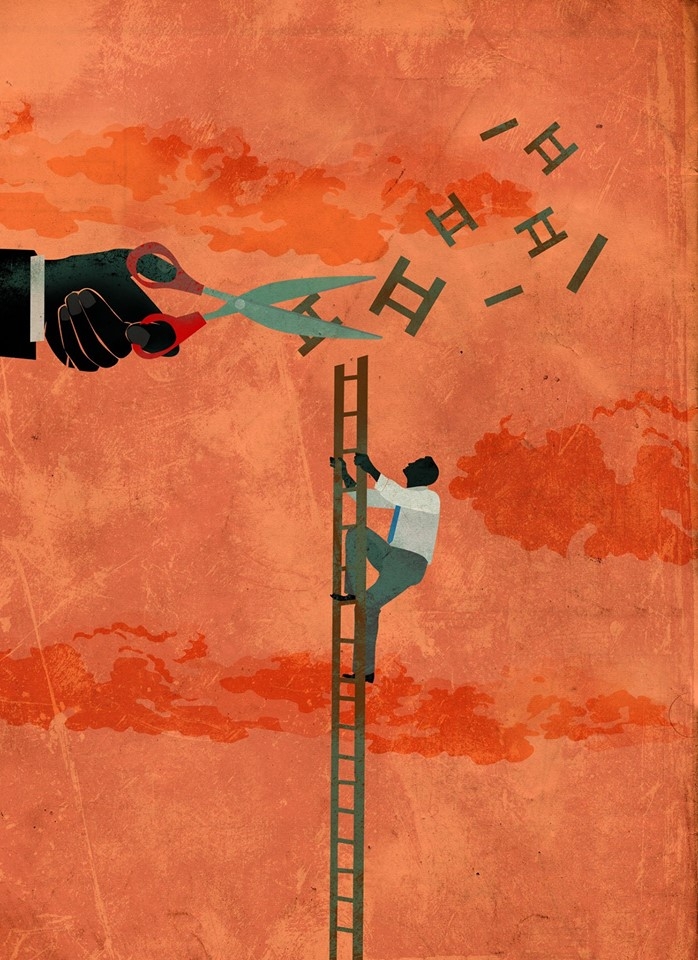Becky Ndegwa stumbled upon what would become her business, Indigo6, during a cold and rainy afternoon at her home in Athi River, on the outskirts of Kenya’s capital Nairobi. While trying to shield herself from the cold, Ndegwa found that the Maasai shuka (a traditional garment worn by the Maasai tribe in Kenya) wasn’t warm enough. So she complemented it with a normal fleece blanket.
“When I put them together it kept falling off… so I thought, ‘How about I join these two, then it becomes one?’” she explains.
Ndegwa then asked her mother-in-law to stitch together the Maasai shuka and the fleece blanket. She was thrilled with the outcome, and made a another blanket, embroided a personal message and gave it to her husband for Father’s Day.
Thereafter, those who visited her home would ask for similar blankets, which Ndegwa would make and offer to them as gifts. Due to the popularity of her blankets, Ndegwa decided to start charging to cover the cost of the materials and labour.
That marked the beginning of her business three years ago. The company now handles an average of 80 to 100 orders a month, with each blanket selling for about US$40.
Celebrity appeal
Her big break came when she gave Caroline Mutoko, one of Kenya’s top media personalities, one of her blankets. Mutoko posted a picture of the blanket on her Facebook page, and within a day Ndegwa had about a 100 enquiries.
This caught her off guard as she still had a full-time job, and had not yet put all the required systems and processes for the business in place. But somehow she delivered on the orders.
Soon afterwards, her product ended up in the hands of Oprah Winfrey, after one of the talk-show queen’s Kenyan guests presented it to her as a gift. Other well-known personalities who have received one of Indigo6’s blankets include the Pope and gospel artist Don Moen. Locally, she has had orders from the first family and the office of the deputy president.
Ndegwa has also struck a partnership Kenya’s Koroga music festival, through which each of the event’s artists received a blanket as a gift.
Managing growth
Despite the growth of her company, Ndegwa is still focused on giving her customers the personal touch. She prefers to make deliveries herself, and only uses courier services for orders outside Nairobi. This allows her to get direct feedback from her clients and helps to build relationships.
“Regardless of how big it grows, I would want it to grow with me still knowing what’s happening… Even when I have a big order of up to 600 pieces, out of all those I will still go through each one to make sure the quality of stitching is up to scratch, and when it is embroidered that the logo looks the way it’s supposed to be.”
To meet deadlines and take care of bulk orders, Ndegwa keeps stock of pre-stitched blankets and only takes on work she knows she can handle. In addition to two permanent employees, she has another five to whom she can outsource should the need arise.
She is considering expanding to the greater east African market through a franchise model, where the local franchisee would run it as their own personal business.
However, this will only happen once Ndegwa has taken advantage of the many opportunities Kenya still has to offer.
One of the major challenges she has faced is with people making replicas of her blankets and selling them at a lower price.
But despite this, demand for her product continues to rise as customers associate it with quality and a personalised service. She is also working on developing her brand before the market gets saturated with similar products.
Source: howwemadeitinafrica.com




